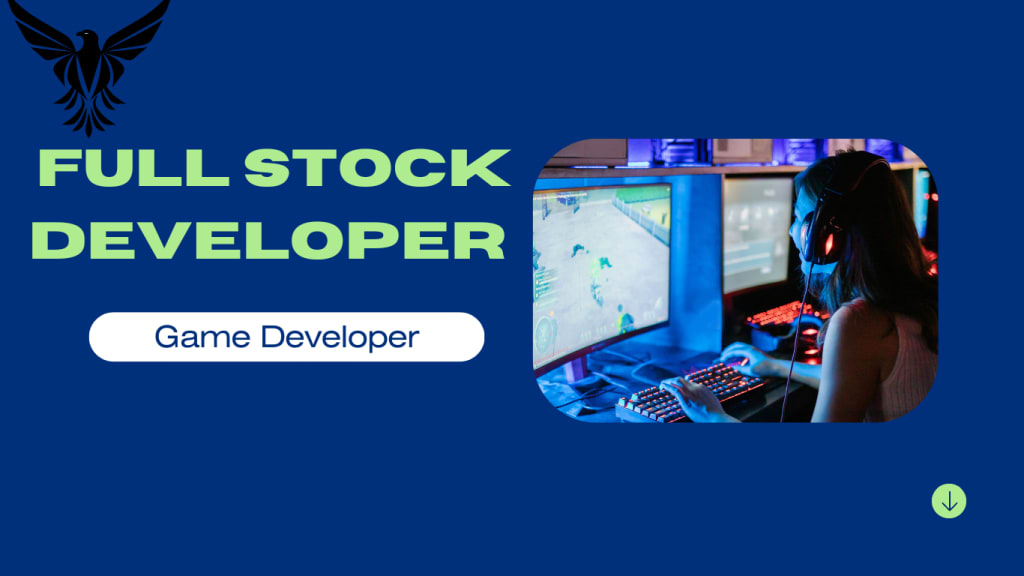FULL STOCK DEVELOPER
Developer's

what is full stock developer
A full stock developer is a developer who has access to all the tools and resources necessary to develop and maintain a software application or system. This typically includes access to the source code, documentation, and any necessary hardware or software development kits. Additionally, a full stock developer will typically have the ability to make changes to the code, test and debug the application, and deploy it to various environments. This is in contrast to a developer who only has access to a subset of the necessary tools or resources.
A full stock developer course would typically cover a variety of topics related to stock market development, including:
- Data analysis and visualization techniques for financial data
- Programming languages and frameworks commonly used in stock market development, such as Python and R
- Financial modeling and quantitative analysis techniques
- Algorithmic trading and backtesting
- Stock market data sources and APIs
- Risk management and portfolio optimization
It may also include hands-on projects and exercises to apply the concepts learned in the course. It could be available online or in-person, it could be a degree program or a certification program.
It is important to note that not all full stock developer course are created equal, and it's important to evaluate the course content, the instructor's expertise and the accreditation of the institution offering the course before enrolling.
A full course for a full-stack stock developer would typically cover a wide range of topics, including:
- Programming languages such as Python, R, Java, C++, and SQL.
- Web development technologies such as HTML, CSS, JavaScript, and React.
- Database management systems such as MySQL, MongoDB, and SQL Server.
- Financial modeling and quantitative analysis techniques.
- Algorithmic trading and backtesting.
- Stock market data sources and APIs.
- Risk management and portfolio optimization.
- Cloud computing platforms such as AWS, Azure, and Google Cloud.
- Data visualization and analysis tools such as Tableau, Power BI, and Matplotlib.
- Agile development methodologies and project management tools.
This course will be usually be a degree program or a certification program, it could be online or in-person. It could take several months to a year to complete.
It is important to note that not all full-stack stock developer courses are created equal, and it's important to evaluate the course content, the instructor's expertise, and the accreditation of the institution offering the course before enrolling.
An outlier for a full-stack stock developer would be someone who has expertise in a specific area that is not typically covered in a full-stack stock developer course. Some examples of outliers in the field of stock market development include:
- Machine learning and artificial intelligence: Someone with extensive knowledge and experience in these areas would be an outlier, as they would be able to develop more advanced and sophisticated trading algorithms.
- Natural Language Processing: Someone who specializes in NLP and has knowledge on how to process and analyze unstructured data (e.g news, twitter), this would be an outlier as it's not a typical skill required in stock market development.
- Cybersecurity: Someone who has experience in cybersecurity and can help secure stock market systems and protect against data breaches and hacking attempts.
- Blockchain: Someone who has expertise in blockchain technology and can use it to develop decentralized stock market platforms.
How to become a full stock developer
- Becoming a full-stack stock developer typically requires a combination of education and experience. Here are some steps that can help you on your journey to becoming a full-stack stock developer:
- Obtain a strong foundation in computer science and programming: This can be achieved through a degree program in computer science or a related field, or through self-study and online resources. It's important to learn one or more programming languages such as Python, R, Java, and C++
- Learn web development technologies: HTML, CSS, JavaScript, and React are essential technologies for building web-based stock market applications.
- Learn about databases and data management: Knowledge of database management systems (DBMS) such as MySQL, MongoDB, and SQL Server, as well as SQL is important.
- Learn about financial modeling and quantitative analysis: This will help you understand how to analyze and predict stock market trends, and make informed investment decisions.Learn about algorithmic trading and backtesting: These are important skills for developing and testing trading algorithms.
- Gain experience with stock market data sources and APIs: Familiarize yourself with different data sources, such as Yahoo Finance, Alpha Vantage, and IEX Cloud, and learn how to use APIs to retrieve and analyze data.
- Learn about risk management and portfolio optimization: Understand how to manage risk and optimize portfolios for maximum returns.
- Learn about Cloud computing platforms such as AWS, Azure, and Google Cloud: This will enable you to build and deploy stock market applications in the cloud.
- Learn data visualization and analysis tools such as Tableau, Power BI, and Matplotlib: This will help you to present data in a meaningful and understandable way
- Learn Agile development methodologies and project management tools: This will help you to manage projects and work in a team effectively.






Comments
There are no comments for this story
Be the first to respond and start the conversation.